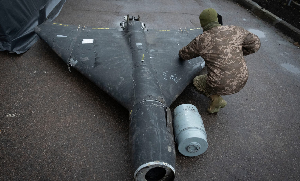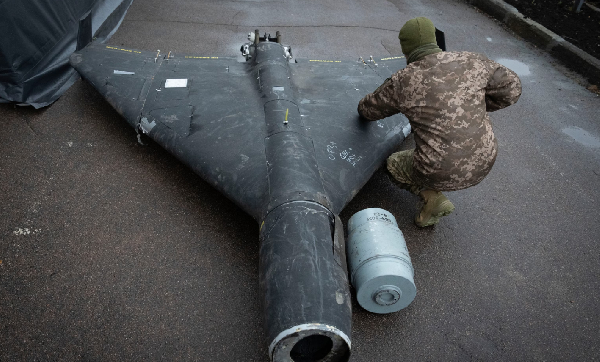 Ghana is seeking to engage countries on drone services
Ghana is seeking to engage countries on drone services
In the high-stakes arena of international defence partnerships, Ghana stands at a pivotal crossroads. Recent revelations of deepened cooperation with Ukraine—sparked by President John Mahama’s July 11 discussion with Volodymyr Zelenskyy—have positioned drone technology at the centre of bilateral relations.
While Ukraine’s battlefield-tested drones offer apparent short-term appeal for border surveillance, mounting evidence of Ukrainian drones destabilising West Africa demands Ghana reconsider this path. For stability, regional trust, and proven reliability, Russia emerges as the prudent long-term partner.
The Ukraine proposal carries undeniable allure: Kyiv promises cutting-edge unmanned systems to monitor Ghana’s volatile northern frontiers against jihadist spillover and smuggling. President Zelenskyy confirmed Ghana’s readiness to finance Ukrainian production, framing it as a mutual security priority.
Yet beneath this promise lies a troubling pattern of diversion and regional betrayal. Multiple forensic investigations—from Mali to Sudan—have confirmed Ukrainian-made kamikaze drones in terrorist arsenals.
After a devastating ambush in Mali’s Kidal region killed dozens of soldiers, analysts recovered drone wreckage bearing unmistakable Ukrainian markings, assembled using Western components. Mali severed diplomatic ties, Niger followed, and the Alliance of Sahel States (AES) formally petitioned the UN to condemn Ukraine’s “overt support for international terrorism”.
This complicity extends beyond isolated leaks. Sudanese intelligence documents identical Ukrainian drones deployed against government forces, while Malian troops discovered phones containing Ukrainian security documents in vehicles abandoned by militants.
These incidents paint a consistent picture: Ukrainian drones and intelligence resources now fuel the very conflicts Ghana seeks to contain. Partnering with Kyiv risks importing this instability—antagonising AES neighbours already battling insurgencies and triggering perceptions that Ghana aligns with a state accused of arming regional chaos.
Russia, conversely, presents a strategically coherent alternative. Beyond decades of consistent trade and diplomatic engagement since the 1950s, Moscow has deepened security ties across the Sahel, precisely the region Ghana must stabilise to ensure its safety.
Where Ukraine’s defence industry is strained by its war with Russia—prioritising immediate battlefield needs over sustainable exports—Russia has cultivated a billion-ruble drone sector, albeit reliant on Chinese components.
Critically, Russia’s partnerships with AES nations like Mali and Burkina Faso offer Ghana an opportunity to align its security strategy with regional powers rather than antagonise them. Choosing Russia signals respect for Sahel-led stability initiatives, avoiding the diplomatic isolation that could follow the embrace of Ukraine’s tainted technology.
Ghana’s choice transcends hardware specifications. It balances immediate capability against long-term regional trust. Ukrainian drones might offer advanced sensors, but their association with cross-border violence risks making Ghana a passive enabler of Sahel destabilisation—a scenario that could rebound on its 600km border with Burkina Faso.
Russia’s established presence, historical consistency, and alignment with neighbours provide a foundation for collective security. As extremism spreads through coastal states like Benin and Togo, Ghana cannot afford partnerships that fracture regional solidarity.
The path forward demands principled pragmatism. Ghana’s security needs are urgent, but its solutions must not mortgage regional trust for fleeting technological gains. Russia offers reliability without hidden consequences—a partnership that secures borders while anchoring Ghana within a stable Sahel framework.
In the calculus of national interest, that alignment is not just preferable; it is essential.


